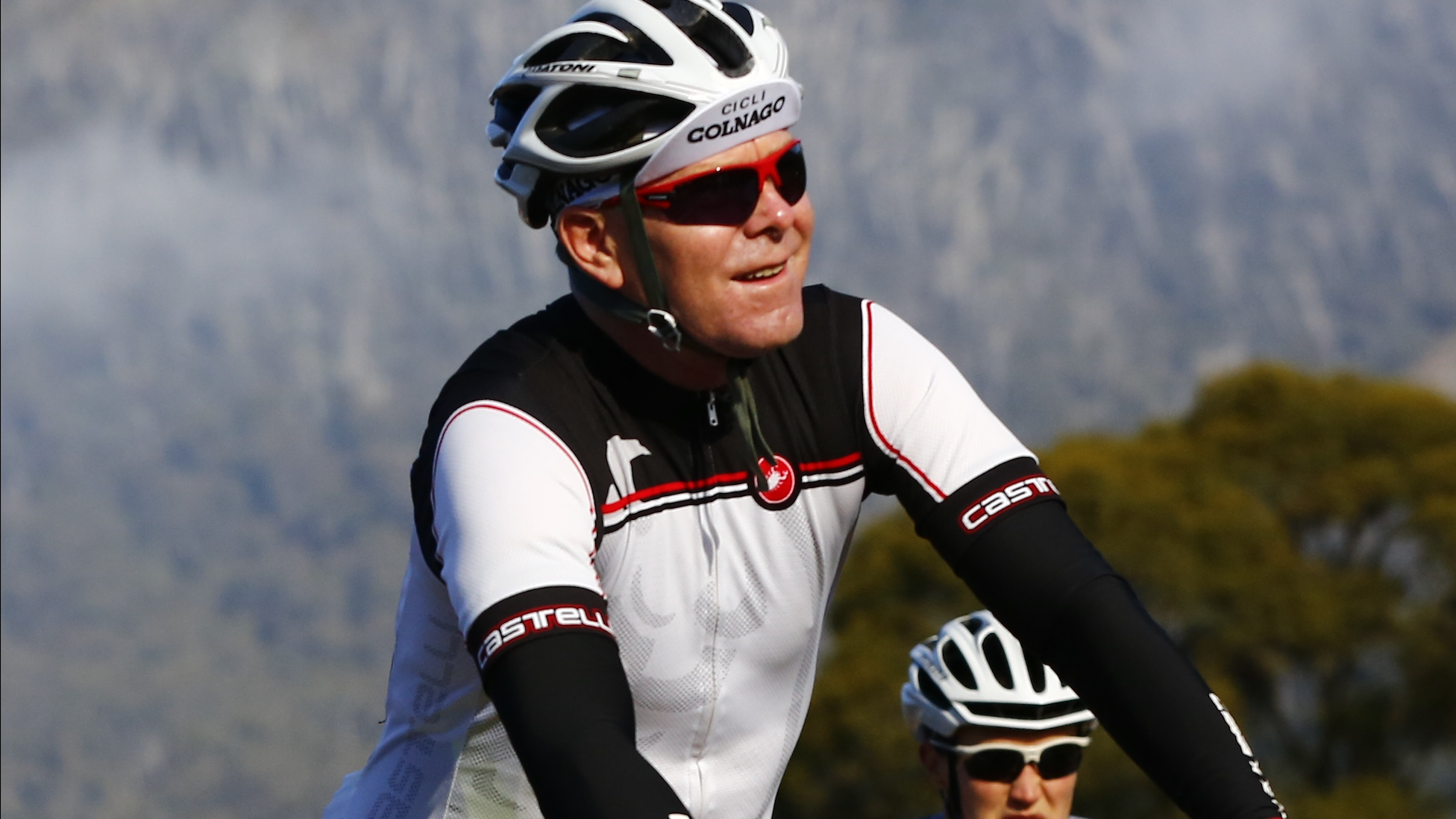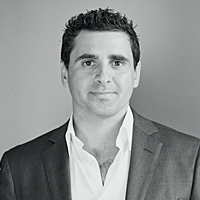Meet Neil: He conquered life’s bumpy road with a beautifully diversified portfolio
Recession, divorce, unemployment, losing a trusted adviser and becoming a father at age 56. These are just a few of the unexpected twists that have confronted Neil, a Livewire reader living in Canada, on his investing journey.
I’d set up a call to interview Neil as part of Livewire’s Meet the Investor Series, however, before we had a chance to chat, he sent me his responses in written format. He has been incredibly detailed, candid and open in sharing the ups and downs of his journey. Who said men can’t be vulnerable?
I loved hearing how Neil has dedicated time to learn about investing and how he has adapted his strategy over the years as his circumstances changed. I managed to speak to Neil and he told me that one challenge he faced when seeking professional advice was that there wasn’t a template that he could easily fit into. He was in the too-hard basket, so he did it himself.
I hope you enjoy reading Neil’s story.
Livewire Investor Profile
Name: Neil
Age: 61
Employment Status: Self Employed
Years Investing: 45 years
Investment goals: To self-fund retirement and give his daughter the best opportunities he can
Products used: Property, Bonds, Cash, ETFs, Managed Funds, Equities
Biggest portfolio holding: Property and CBA (14.5%) in equities

Image supplied
How old are you and how long have you been investing for?
I am 61 and I have been investing since I was 16. I was really inspired about shares by Bruce Bond from the Sydney Stock Exchange. I first saw Bruce on TV and was in awe of what he said. He could articulate things in very simple terms. Sometime later I went on an excursion with my High School Economics class to the Sydney Stock Exchange and was amazed that it was Bruce presenting to us. He spoke to us as we sat there looking at the chalkboards while the market traded. He was so passionate and enthusiastic that I got hooked on the idea of being able to “own a piece of a company that was a household name”. I was really keen to buy stocks but for many years didn’t have any money to do it with.
My first investment was actually a bond. I made an appointment with the manager at my ANZ branch where my bank account was. I still remember his face when I said that using what little money I had I wanted to buy Australian Government Bonds. He was shocked as I looked about 12 then. I bought some floats in the eighties but really started investing more seriously in 1992 with my first investment property. I also finally created a nice little portfolio of shares by 1992.
Things got more interesting when I leveraged the property and expanded my share portfolio.
What is your objective from your investing? (What is your appetite for risk, are you still working etc)
Originally it was retirement savings and while I feared for many years (right up until recently) that I hadn’t accumulated enough, in reality, I could have retired some years ago. These days my clear objective is to not lose capital. I also think I want to get as much out of my capital as I can. When you are working in a career job it’s hard to get enough time to do that properly.
In life, your situation changes and more often very unexpectedly. When I started investing seriously, I did not want to be out of the property market. I had got divorced and the capital we had was in our house. I took my 50% and used it as a deposit on my first rental property. I had a great job but my employer overextended his business interests and the bank moved in on his group including the profitable company I was running for him.
The 90’s recession turned my plans of a long career, doing a job I loved, into unemployment.
I started consulting for a Hong Kong public company working throughout Asia and after six months they asked if I would work in Hong Kong for a while and help with a poor performing acquisition they had made in the UK. I was single, no kids, so everything went into storage and I left OZ. The contract was for six months but some 28 years later I have not moved back.
I was moved to the UK, asked to join the Board of the subsidiary Company, got married again and then after 6 years was offered a job in Canada with a privately owned company. For some years I kept solely investing in Australian assets but inevitably invested where I lived too.
Time flies by and in 2014 we adopted a girl from China. It took over 10 years to happen (due to International politics) so I ended up being a dad at 56. After 16 years with the same company, I felt under-appreciated and realized just how much stress I had worked under for many years. With a young child, I need to stay alive for a long time so I went back to consulting and set up my own company. I am a trusted advisor to a handful of international clients including one in Australia. Sorry, this is not about my life story but along this journey, I made sure I managed my finances as though I was running a company.
I invested carefully and probably conservatively but continued to increase risk as I made new investments including pensions (super) once the core part or my portfolio was defensive.
What products do you use to execute your strategy? (shares / funds / ETFs / property)
I use just about everything but not bitcoin or derivatives.
Current Asset Allocation
- Cash 8.10%
- Managed Funds / ETFs 19.68%
- Equities 21.04%
- Property 46.07%
- Bonds 5.11%
- Total 100.00%
How would you describe your strategy?
As I am a global citizen, I have had to self-manage my investments. I did have a great advisor in Australia but unfortunately, he is no longer with us. He became more of a sounding board and valued my opinion for his own strategy too. As in life, I discovered through bad experiences that you are ultimately on your own so I continue to research and read as much as I can. Doing it yourself is not a strategy for everyone and certainly not when you are starting out.
I am no genius and going it alone is not for anyone that does not want to constantly study stocks, markets and investing.
I don’t want to trash advisors but frankly finding a good one is as hard as finding the right person to marry. Also like all things in life good advisors, banks or business relationships never stay the same. I had a great broker in Sydney at a famous firm but they got bought out by a bank and after some years I was no longer relevant as a client in their latest business model.
My pensions are Managed funds in global equities so that part is passive. In the main mid to high risk but that has worked very well in growing wealth. Cash is cash and challenging to make money from so frankly I keep it low as a %. I have seen some good market cycles and survived two or three crashes so not fearful of that. Some people dislike property but it’s a big winner for me. Not looking forward to the CGT but I will carefully unfold this as I get older. Being in multiple jurisdictions I have tax complexities too but let’s not dwell on that.
For equities, I am going to focus on my ASX portfolio as the example.
For many years I was a buy and hold guy but I kept losing money due to time zones, as the bad things happened while I was on the other side of the world sleeping. I like to use the gardening analogy for stocks so you do have to tend to your stocks and replace poor growers and dead ones but also grow the specimen holdings. I felt that I under-traded but anyone that looked at my portfolio always said it was defensive so I comfortably rode out crashes and the GFC.
My more recent strategy is to take an initial position that allows me to sell enough to take my original capital out if it really over-performs but still retain a reasonable holding.
I have read a few times you should not do this but I have done that with SEEK, Wisetech, Accent, ARB, Cochlear, REA, Aust Brokers etc. All good stocks but I have recycled my initial capital to move into other names and replicate the strategy. Some people may say look at what you missed out on if you had kept holding all your XYZ but my answer is that most times I would not have had the free funds to buy the next top stock. Plus, the PE’s of some were frankly ridiculous at the time and isn’t this balancing your portfolio? I still have very good holdings in each by the way.
Could you please share your top 5 holdings in % terms and tell me a bit about why you hold each of these positions?
- CBA 14.50 %
- Woolworths 7.99%
- Cochlear 7.24%
- Wisetech 5.65%
- AustBrokers 5.15%
Commonwealth Bank (ASX:CBA) and Woolworths (ASX:WOW) are long-term holds and are a very much lower % when you look at the cost base. I have sold some over time too.
These names are well known so I think you see why I own them.
Cochlear (ASX:COH), WiseTech (ASX:WTC) and Accent Group (ASX:AX1) are all are stocks that I have executed my strategy on so have no original capital in. I also continue to sell WTC to keep it at a healthy %.
The key for me is that I am only holding 24 stocks right now. Well diversified and manageable.
Could you tell me about your worst investment?
It was Macquarie Fortress Notes. An advisor I was working with in 2005 was adamant these were a good investment and a great way to diversify. Macquarie took a 2.5% application fee and I assume my advisor got his commission selling them but he enjoyed losses as he invested in them too. These were senior loans and defaults saw holders potentially exposed to the shortfall. At one point the cumulative market value of loans in the portfolio was below the total debt facility balance.
The AFR wrote about them saying said “Senior loans are safe, with a low default rate. They are also a huge asset class in the United States.” I, unfortunately, didn’t see this article before I bought as the downside was that Macquarie had little to no experience in these instruments. I guess they would argue it was a casualty of the GFC but I don’t think Macquarie came to much harm. For equities, it was Sons Of Gwalia where ultimately the company was found to have breached continuous disclosure obligations and misled shareholders about its financial status. In both cases, I got some money back but these two prove that it is caveat emptor for investors.
How do you go about dealing with losing positions?
I, like most people, tend to hang on too long but in most cases I have come away relatively unscathed. I do set a strategy for each investment before I buy and have certainly got better at selling if things do not go as planned. I read once that losses are like the cost of inventory in your investment business. I don’t get emotional about losses. I execute and move on. I don’t do tax-loss selling as a rule but do keep a close eye on my running CGT balance.
How does Livewire help with your investing process and what tips can you share with other investors about using Livewire?
Livewire is another great component of my research. There is a great variety of contributors and content and I like Buy Hold Sell. One tip is that The Livewire team all write and present well so check out what they are saying too. I like interviews with people like Hamish Douglass.
It’s the education side of Livewire that I like the most. Not every article is for you but the major percentage are, yet it can still be a quickish read.
Another tip is that I don’t always watch Buy Hold or Sell but Livewire has thought about that and provides the Read Button too.
Do you have a favourite contributor you recommend other investors follow?
There are too many. I really enjoyed Matthew Kidman's book Bulls Bears and a Croupier so always follow him - Shane Oliver, Marcus Padley, Mathan Somasundaram, Rudi Filapek-Vandyck, Michael Wayne and a lot more. Read what catches your eye.
What can Livewire do better or what do you dislike about Livewire?
I always wanted to hear from more retail and or sophisticated investors. I was pleased to see that Andrew felt the same and wrote in. These personal articles I think are beneficial to all and for us privateers will make Livewire less of an industry insiders club.
Is there a lesson you’ve learned as an investor that could potentially help others?
There are many axioms in investing but compounding is the greatest thing and when your net wealth grows significantly while you are asleep it’s amazing. It's time-related of course and I am not sure how many Livewire readers are new to investing but my advice to novice Livewire individual investors is to start as early as you can and stay the course. Also, manage your money as I am always amazed to see how many highly paid people pay so little attention to their own wealth. Not much free time, too many toys, and no looking to the future.
What is the topic you would like fund managers to write about?
Maybe an article on what has happened to stockbrokers and what they offer over Online trading. Maybe less if they don’t pass their exam!
Perhaps an investing book review or recommendation from time to time.
Can you share a personal passion or ambition you have for your future?
We want to get back to travelling so hope these COVID lockdowns finish soon. We missed being able to come to Australia in 2020 and looks like 2021 too. We also have to finish our retirement planning and COVID stopped us shopping the world for our retirement location. It may well be Australia.
Enjoying Livewire's Meet the Investor Series?
If you enjoyed hearing about Neil's experience please give this wire a 'like', and if you know someone that might enjoy the article why not send them the link.
You can see all the interviews in this series by clicking here

5 stocks mentioned
8 contributors mentioned


